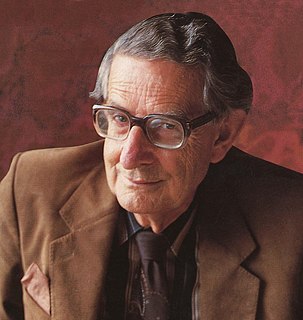A Quote by Kay Redfield Jamison
No pill can help me deal with the problem of not wanting to take pills; likewise, no amount of psychotherapy alone can prevent my manias and depressions. I need both. It is an odd thing, owing life to pills, one's own quirks and tenacities, and this unique, strange, and ultimately profound relationship called psychotherapy
Related Quotes
Sometimes, though, I feel that pushing books is a whole lot like pushing medicine. Think of books as pills. I have pills that cure ignorance and pills that cure boredom. I have pills to elevate moods and pills to open people's eyes to the awful truth: uppers and downers as they were. I sell pills to help people find themselves and pills to help them lose themselves when they require escape from the pressures and anxieties of life in a complex society.
To these people, unhappiness was a condition, an intolerable state of affairs. If pills could help, pills were taken. But pills were not going to change the fundamental problem in the construction. Wanting what you can´t have. Looking for self-worth in the mirror. Layering work on top of work and still wondering why you weren´t satisfied - before working some more.
Psychotherapy makes every problem a subjective, inner problem. And that's not where the problems come from. They come from the environment, the cities, the economy, the racism. They come from architecture, school systems, capitalism, exploitation. They come from many places that psychotherapy does not address. Psychotherapy theory turns it all on you: you are the one who is wrong.
In Hamburg the waiters always had Preludin - and various other pills, but I remember Preludin because it was such a big trip - and they were all taking these pills to keep themselves awake, to work these incredible hours in this all-night place. And so the waiters, when they'd see the musicians falling over with tiredness or with drink, they'd give you the pill. You'd take the pill, you'd be talking, you'd sober up, you could work almost endlessly - until the pill wore off, then you'd have to have another.
Psychedelics are extraordinary tools, when used with psychotherapy, because in one day you can let go of so much, and have insight into so much. Sometimes more than in a year of traditional psychotherapy. I think they should be used in psychotherapy. But I don't know who should be entrusted with the toolbox - priests or psychiatrists? That is the difficulty.
One strand of psychotherapy is certainly to help relieve suffering, which is a genuine medical concern. If someone is bleeding, you want to stop the bleeding. Another medical aspect is the treatment of chronic complaints that are disabling in some way. And many of our troubles are chronic. Life is chronic. So there is a reasonable, sensible, medical side to psychotherapy.


































